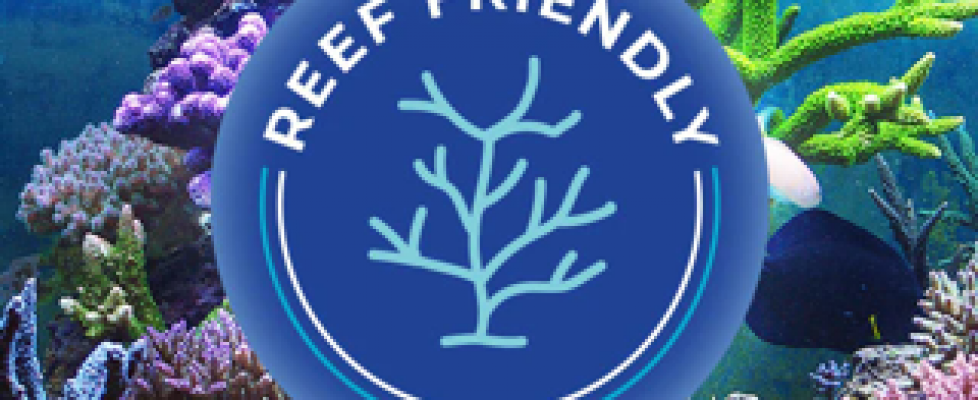Planet
As awareness regarding the adverse effects of solar ultraviolet (UV) radiation on skin health grows, including skin damage, premature ageing and even cancer, sunscreen has been widely used to prevent the cutaneous harm. However, many chemicals in sunscreen could cause damage on the marine animal and coral reefs which cause a negative impact on world sustainable developments.
The chemicals that have been commonly used, such as oxybenzone which is found in more than 3,500 skin care products worldwide (Skincare chemicals and Coral Reefs, 2013), is immensely toxic to coral reefs. The National Centers for Coastal Ocean Science researchers had discovered even very low concentrations of or BP-2, can quickly kill juvenile corals. (NCCOS, 2013) There are roughly 14,000 tons of sunscreen enters waterways (American Chemical Society, 2019) around the world every year mainly from swimmers in the ocean and washing off from our bodies.

To achieve the Sustainable Development Goals (SDGs), also known as the Global Goals, were adopted by the United Nations in 2015 (United Nations 2023), the product which produced by the cosmetic industry has already made impact on the SDG 11 of life below water. An estimated 25 percent of all marine life are dependent on coral reefs at some point in their life cycle. (US EPA, 2017) The industry should avoid using ingredients that can cause damage to coral reefs, and opting instead for ingredients such as zinc oxide and titanium dioxide, which function as physical barriers to the absorption of ultraviolet (UV) radiation by the skin

Certain companies have already initiated proactive measures. La Roche-Posay, for example, has introduced a line of sunscreen products adorned with a logo symbolizing their commitments to respect marine life, thus elevating the significance of coral reef and marine ecosystem conservation. In collaboration with external organizations like CRIOBE, Tara Pacific, Ifremer, CSM, La Roche-Posay has a dedicated team has been testing the Anthelios range to ensure these products are marine safe. (La Roche-Posay, 2023)

Apart of choosing reef-friendly products to save the life below water, it’s also important to spread awareness about the issue to people around us, or even advocate for local legislation to ban sunscreens that contain toxic ingredients. There are many governments started to ban or regulate the use of sunscreens due to the influence on marine animals. The most restrictive regulations on sunscreens are from the Republic of Palau, which banned all organic UV-filter sunscreens (BBC News, 2020).
Reference list
- National Ocean and Atmospheric Administration (2013) Skincare chemicals and Coral Reefs. Available at: https://oceanservice.noaa.gov/news/sunscreen-corals-noaa-studies.html (Accessed: 08 Oct 2023).
- American Chemical Society (2019) Sunscreen and cosmetics compound may harm coral by altering fatty acids. Available at: https://www.sciencedaily.com/releases/2019/01/190109110048.htm (Accessed: 08 Oct 2023).
- Downs, C.A., Kramarsky-Winter, E., Segal, R., Fauth, J., Knutson, S., Bronstein, O., Ciner, F.R., Jeger, R., Lichtenfeld, Y., Woodley, C.M., Pennington, P., Cadenas, K., Kushmaro, A. and Loya, Y. (2015). Toxicopathological Effects of the Sunscreen UV Filter, Oxybenzone (Benzophenone-3), on Coral Planulae and Cultured Primary Cells and Its Environmental Contamination in Hawaii and the U.S. Virgin Islands. Available at: https://doi.org/10.1007/s00244-015-0227-7. (Accessed: 08 Oct 2023).
- US EPA (2017). Basic Information about Coral Reefs. Available at: https://www.epa.gov/coral-reefs/basic-information-about-coral-reefs#:~:text=Coral%20reefs%20are%20among%20the. (Accessed: 08 Oct 2023).
- La Roche-Posay (2023) “Our commitment”, INNOVATING SUSTAINABLY, 2023. Available at: https://www.laroche-posay.ca/en_CA/our-commitment.html. (Accessed: 08 Oct 2023).
- ScienceDaily. (2019). Sunscreen and cosmetics compound may harm coral by altering fatty acids. Available at: https://www.sciencedaily.com/releases/2019/01/190109110048.htm. (Accessed: 08 Oct 2023).
- US EPA (2017). Basic Information about Coral Reefs. Available at: https://www.epa.gov/coral-reefs/basic-information-about-coral-reefs#:~:text=Coral%20reefs%20are%20among%20the. (Accessed: 08 Oct 2023).
- Cooney, J., Lenczewski, M., Leal-Bautista, R.M., Tucker, K., Davis, M. and Rodriguez, J. (2023). Analysis of sunscreens and antibiotics in groundwater during the Covid-19 pandemic in the Riviera Maya, Mexico. Science of The Total Environment. Available at: https://doi.org/10.1016/j.scitotenv.2023.164820. (Accessed: 08 Oct 2023).
- Palau is first country to ban ‘reef toxic’ sun cream. (2020). BBC News. Available at: https://www.bbc.co.uk/news/world-asia-50963080. (Accessed: 08 Oct 2023).
